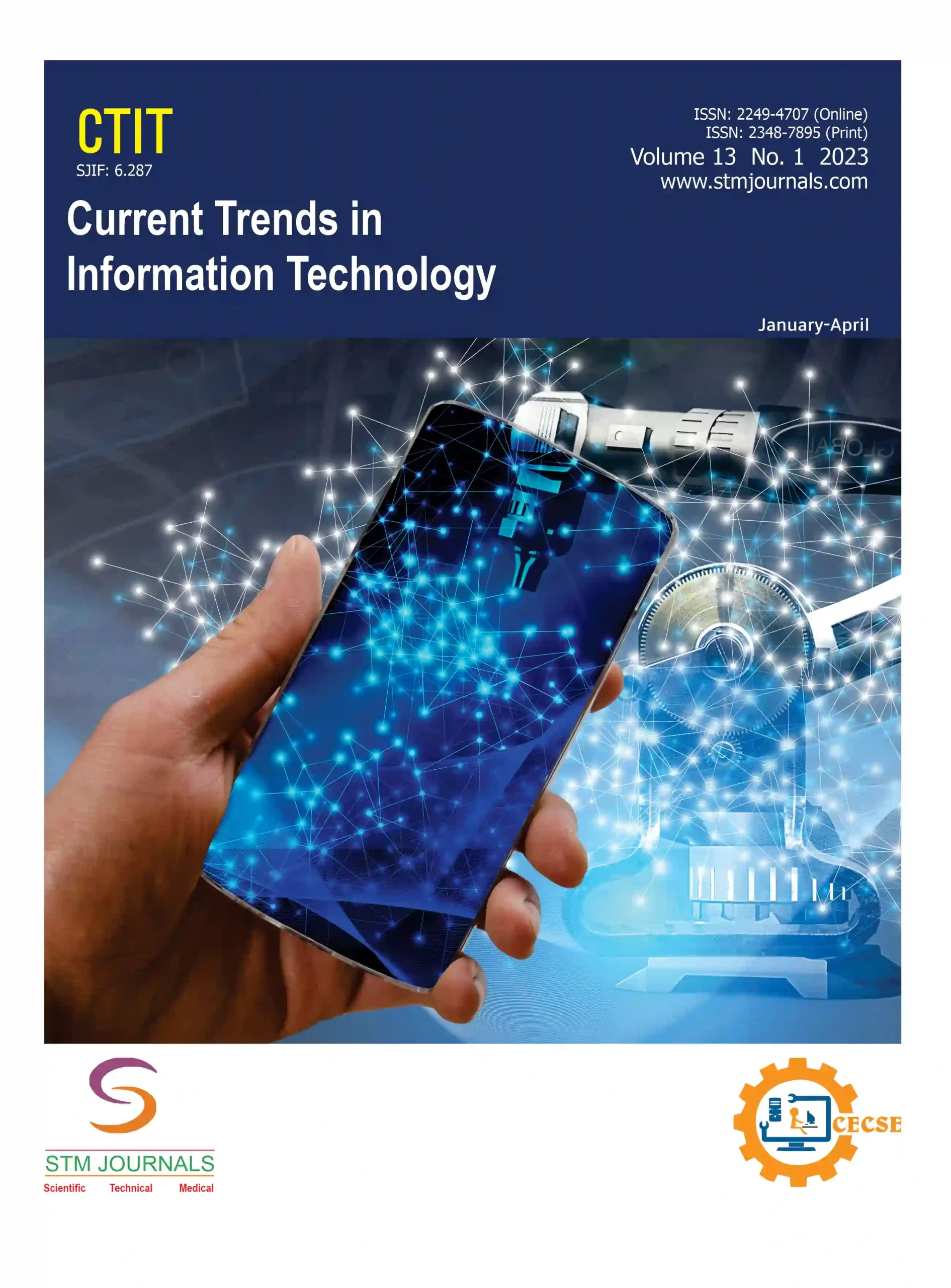Nagendra Pratap Singh,
Mamata Singh,
- Associate Dean-Research, Department of Techno Centre Engineering, MS Ramaiah University of Applied Sciences, Bangalore, Karnataka, India
- Visiting Senior Scientist, Department of Medicine, Division of Infectious Disease, Mayo Clinic, Jacksonville, Florida, USA
Abstract
In an age where data privacy is a significant concern, federated learning (FL) has become a game-changing method in machine learning. This decentralized model enables various parties to work together on training models without exchanging their raw data, effectively tackling the issues posed by data silos and privacy regulations. This article explores the current state of FL, including its underlying models and algorithms, practical applications, benefits, challenges, and future directions. NVIDIA’s Clara Train SDK plays a crucial role in FL. By synthesizing recent research findings, we aim to comprehensively understand FL’s impact on various industries and its potential to drive innovation. The article highlights the FL process. The article explores the current landscape of FL across multiple business domains, addressing its benefits, challenges, and prospects, ultimately emphasizing its role in creating a more efficient and privacy-preserving healthcare ecosystem. FL represents a significant leap forward in collaborative innovation, allowing businesses to leverage collective intelligence while maintaining data privacy. This decentralized approach opens new opportunities across various sectors, driving significant value and enabling organizations to balance privacy with powerful insights. As research and development in this area progress, FL is set to become a fundamental pillar in the future evolution of machine learning.
Keywords: Federated learning (FL), artificial intelligence (AI), decentralized model, machine learning, data privacy, algorithms
[This article belongs to Current Trends in Information Technology ]
Nagendra Pratap Singh, Mamata Singh. Federated Learning: A Comprehensive Review of Models, Algorithms, and Business Applications. Current Trends in Information Technology. 2024; 14(03):1-9.
Nagendra Pratap Singh, Mamata Singh. Federated Learning: A Comprehensive Review of Models, Algorithms, and Business Applications. Current Trends in Information Technology. 2024; 14(03):1-9. Available from: https://journals.stmjournals.com/ctit/article=2024/view=171692
References
- Kairouz P, McMahan HB, Avent B, Bellet A, Bennis M, Bhagoji AN, et al. Advances and open problems in federated learning. Found Trends® Mach Learn. 2019;4(1). DOI: 10.48550/arXiv.04977.
- Jacobs J, Van Moll J, Krause P, Kusters R, Trienekens J, Brombacher A. Exploring defect causes in products developed by virtual teams. Inf Softw Technol. 2005;47:399–410. DOI: 10.1016/j.2004.09.006.
- Altun A. Understanding hypertext in the context of reading on the web: Language learners’ experience. Curr Issues Educ. 2003;6(12):1-15. Available from: https://cie.asu.edu/ojs/index.php/cieatasu/article/view/1685.
- Hoffman M, Blake J. Computer literacy: Today and tomorrow. J Comput Sci Coll. 2003;18:221–33.
- Wen Y, Li W, Roth H, Dogra P. (2019). Federated Learning powered by NVIDIA Clara. [online] NVIDIA Technical Blog. Available from: https://developer.nvidia.com/blog/federated-learning-clara/.
- Li W, Milletarì F, Xu D, Rieke N, Hancox J, Zhu W, Baust M, Cheng Y, Ourselin S, Cardoso MJ, Feng A. Privacy-preserving federated brain tumour segmentation. In: Machine Learning in Medical Imaging [10th international workshop]. Proceedings of the 10, MLMI 2019, Held in Conjunction with MICCAI, Vol. 13, 2019. October: Shenzhen, China. Springer International Publishing, pp. 133–141.
- NVIDIA developer blog (2021). Using Federated Learning to Bridge Data Silos in Financial Services. [online] Available from: https://developer.nvidia.com/blog/using-federated-learning-to-bridge-data-silos-in-financial-services/.
- Sun C, Duan X, Qiu L, Shi Q, Li T. RLIM: Representation learning method for influence maximization in social networks. Int J Mach Learn Cybern. 2022;13:3425–40. DOI: 10.1007/s13042-022-01605-8.
- Sun T, Li D, Wang B. Decentralized federated averaging. IEEE Trans Pattern Anal Mach Intell. 2023;45:4289–301. DOI: 10.1109/TPAMI.2022.3196503. PubMed: 35925850.
- Moshawrab M, Adda M, Bouzouane A, Ibrahim H, Raad A. Reviewing federated learning aggregation algorithms; strategies, contributions, limitations, and future perspectives. Electronics. 2023;12:2287. DOI: 10.3390/electronics12102287.
- Acar DA, Zhao Y, Navarro RM, Mattina M, Whatmough PN, Saligrama V. Federated learning based on dynamic regularization. [Preprint]. ArXiv:2111.04263 (2021 Nov 8). DOI: 10.48550/2111.04263.
- Bonawitz K. Towards Federated Learning at Scale: System Design. [Preprint]. ArXiv:1902.01046 (2019). DOI: 10.48550/arXiv.1902.01046.
- Fallah A, Mokhtari A, Ozdaglar A. Personalized federated learning: A meta-learning approach. arXiv Preprint ArXiv:2002.07948 (2020 Feb 19). DOI: 10.48550/arXiv.2002.07948.
- Sheller MJ, Edwards B, Reina GA, Martin J, Pati S, Kotrotsou A, et al. Federated learning in medicine: Facilitating multi-institutional collaborations without sharing patient data. Sci Rep. 2020;10:12598. DOI: 10.1038/s41598-020-69250-1. PubMed: 32724046.
- Rahman A, Hossain MS, Muhammad G, Kundu D, Debnath T, Rahman M, et al. Federated learning-based AI approaches in smart healthcare: Concepts, taxonomies, challenges and open issues. Cluster Comput. 2022;1–41. DOI: 10.1007/s10586-022-03658-4. PubMed: 35996680.
- Yang A, Ma Z, Zhang C, Han Y, Hu Z, Zhang W, et al. Review on application progress of federated learning model and security hazard protection. Digit Commun Netw. 2023;9:146–58. DOI: 10.1016/j.dcan.2022.11.006.
- Zhang C, Xie Y, Bai H, Yu B, Li W, Gao Y. A survey on federated learning. Knowl Based Syst. 2021;216:106775. DOI: 10.1016/j.knosys.2021.106775.
- Wen J, Zhang Z, Lan Y, Cui Z, Cai J, Zhang W. A survey on federated learning: Challenges and applications. Int J Mach Learn Cybern. 2023;14:513–35. DOI: 10.1007/s13042-022-01647-y. PubMed: 36407495.

Current Trends in Information Technology
| Volume | 14 |
| Issue | 03 |
| Received | 05/08/2024 |
| Accepted | 28/08/2024 |
| Published | 11/09/2024 |
PlumX Metrics
